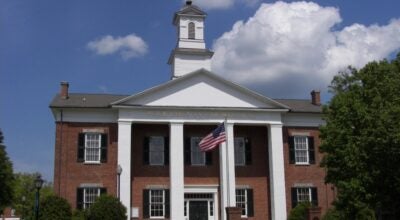Horse Council caucus talks industry, trails, animal rights
Published 5:33 pm Friday, April 30, 2010
Sue Gray, Executive Director of the N.C. Horse Council, conducted a Western North Carolina regional caucus meeting at Isothermal Community College in Columbus Tuesday.
The caucuses are being held to be listening sessions, as a follow up to the recently released N.C. Equine Study. Grey urged those in attendance to join the Horse Council so their voices will be heard by decision makers in Raleigh.
There were over 30 equestrian sports enthusiasts from Polk County and the region in attendance.
Nancy Wilson pointed out that Polk County and Western North Carolina are very serious about the horse business, particularly trails, show venues and land conservation.
Libbie Johnson, vice chairman of the Polk County Economic Development Commission, pointed out that the number of businesses represented in the 2010-2011 Foothills Equine Directory grew 40% from the previous publication, “and that was in a down economy.” The directory is published by the Foothills Riding Club, with Johnson as the project director.
Johnson also said she had been in Lexington, Ky. recently for the 2010 Rolex Kentucky Three-Day Event and everyone she met and talked to “knew Western North Carolina” and Tryon as prime equestrian territory.
“We have a nationally recognized equine hospital here that serves five states,” she said. “We have eighteen horse organizations. Most places Middleburg, Aiken, Camden, Ocala have either competition venues or trails. We have both here. That really puts us on the map. And our equestrian area is historically significant. We are way ahead. The only thing we dont have is polo fields.”
Tom Thomas of Brevard, a former candidate for the N.C. House, talked about the need to monitor and advocate for trails in the regions state and national parks, and for “right-to-ride” legislation.
Grey also shared with those in attendance her concern that lobbyists from organizations such as People for the Ethical Treatment of Animals (PETA) and the Humane Society of the United States (HSUS) are pushing radical “animal rights” agendas that could affect the horse industry, and livestock, all in the guise of decency and love for animals.
Grey said the local humane societies in North Carolina are doing great work, and are not affiliated with HSUS and its national agenda.
As for that agenda, Grey said that some want to see horses reclassified under the law to be “companion” animals, and she said the law must remain that horses are “livestock” for equestrians to pursue their sports.
Ray Gasperson, a Polk County commissioner, wondered if can be difficult to translate agricultural and livestock issues through the N.C. General Assembly as the state becomes more urban in nature.
Grey said HSUS and PETA do have huge budgets to get their messages out, but she pointed out that 53,000 households in the state own horses.
Johnson said the question of “animal rights” versus “animal welfare” is one of semantics.
“The line is drawn in different places for different people,” she said.





